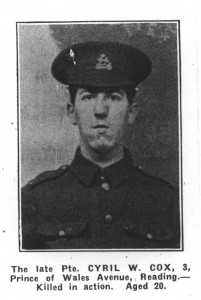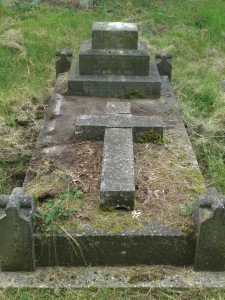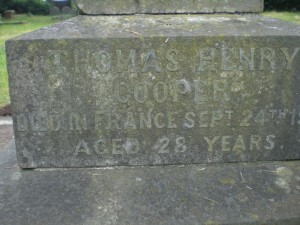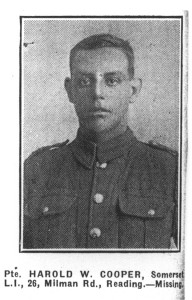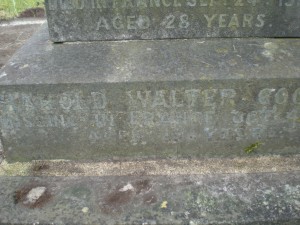Cyril Wilson Cox
Private 3148
1st/4th Royal Berkshire Regiment
Division 66
Extension
Cyril Wilson Cox lived with his mother at 3. Prince of Wales Avenue, Reading. He had been born in Gamlingay, Cambridgeshire and was educated at Newbury Grammar School. Before the war Cyril Cox worked for Messes. Nicholas Estate Agents, Station Road, Reading. We are told that his colleagues held him in high esteem.
He enlisted on 4th October 1914 and was killed in action seventeen months later on 14th August 1916. He is named on the kerbs of the family grave and commemorated on the Thiepval Memorial to the Missing, Pier and Face 11D, having no known grave.
The following is a description from the official history of the action in which Cyril Cox lost his life:
Around the time of his death his battalion was stationed near to the 5th battalion Royal Berkshire Regt., who on the night of the 12th August 1916 took the enemy by surprise and seized “Ridge Trench” on the crest of a hill which was part of the Thiepval ridge. On the morning of the 13th August the 5th Battalion were relieved by the 4th Oxfords with the 1st/4th’s in support. At 9.30p.m. the Oxfords gave notice that the Germans were trying to bomb them out of the trench. Two platoons from the Berkshire battalion, numbers1 and 2, were sent forward to supply the Oxfords with bombs. “D” company was put under the command of the Oxfords Colonel with a further supply of bombs. The Oxfords were due to lead a counter attack but it was the 1st/4th’s who were eventually given the command to lead. In a manner typical in the chaos of the war, a barrage planned for before the attack did not take place and later, without detailed orders, the Berkshire men tried to cross the 250 yards of open ground facing the Germans. The Germans, relatively safe and protected in their trenches, were able to shoot unhindered on the advancing lines of men. The image is one frequently painted during the Great War. For the survivors of the attack, shelter was poor but fortunately a British aeroplane responded to signal flares and as a result British artillery opened up on the German trenches and the remaining Berkshire men were able to get to safety. Losses for this flawed action were very high, 140 casualties from the ranks including 59 killed and missing. Petre in his history of the regiment, comments in his account that, “Failure is often more heroic than success, and these loyal men fought and died with great honour”.
The Reading Standard 23rd September 1916 published an extract of a letter sent by a friend to his mother about his death.
“ It is my sad duty to inform you that Cyril’s death occurred on the morning of August 14th when our company attacked. Almost immediately he was wounded by a bullet which affected his spine and paralysed him from the waist downwards. He lived about two hours and was able to have the wound dressed. From the first I think he knew his end had come. He passed away repeating his prayers. Words fail to express what I feel about his death. It seems hard that a life of such promise should have ended so suddenly, but his destiny as well as ours is in the best hands.”
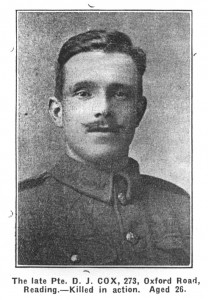
![dbImage[1]](http://cemeteryjunctionwargraves.org.uk/wp-content/uploads/2013/11/dbImage11-300x225.jpg)
